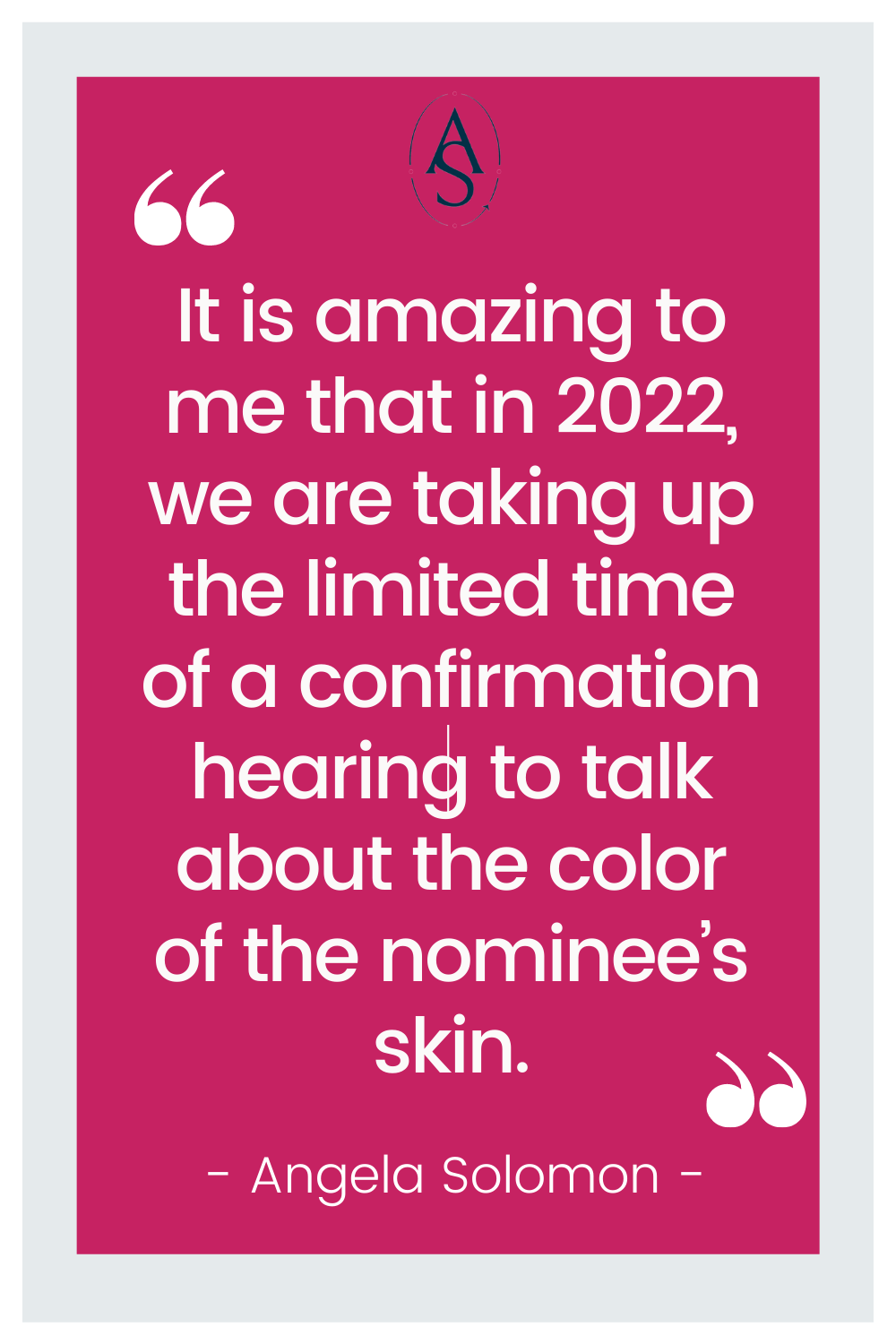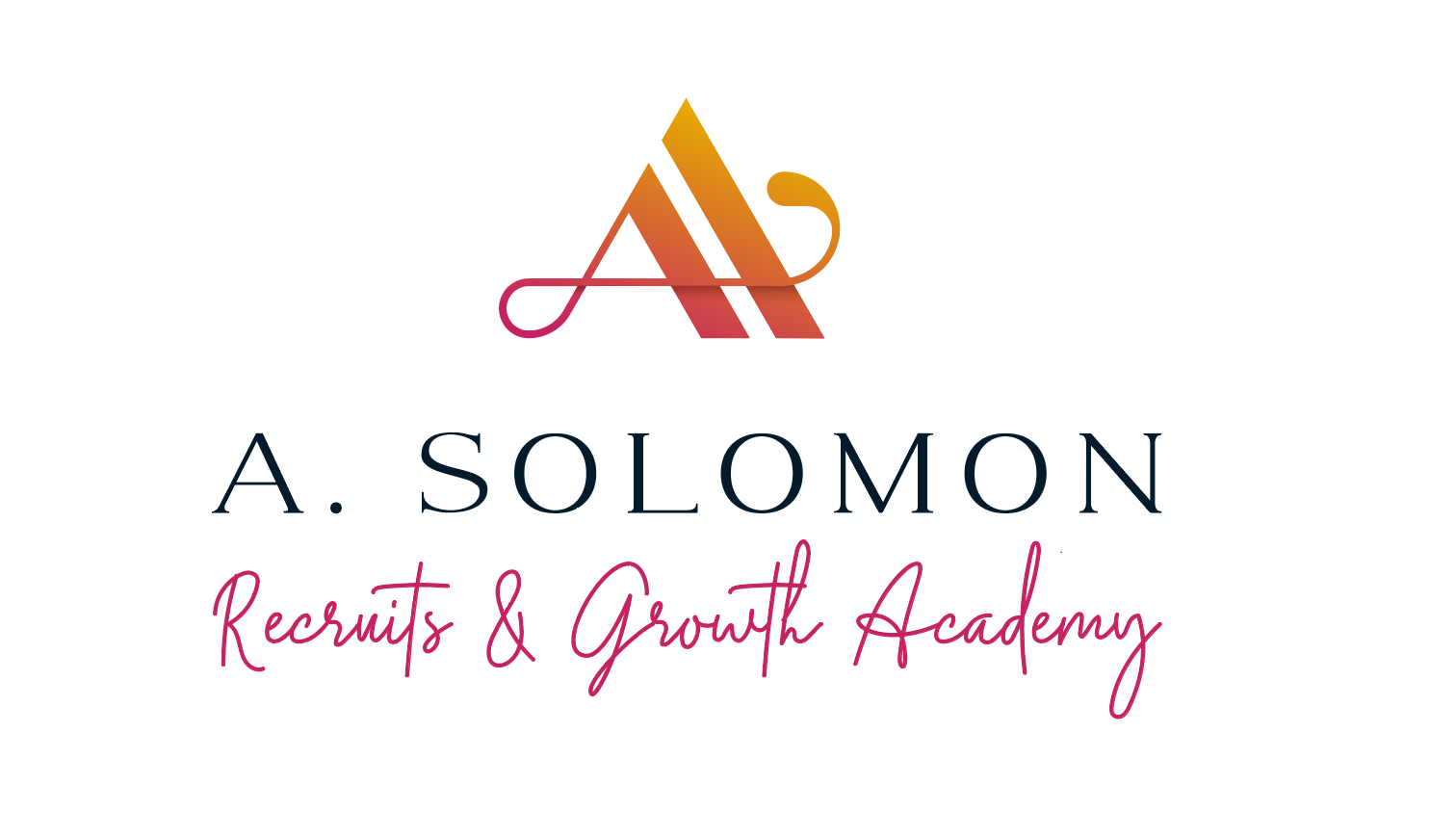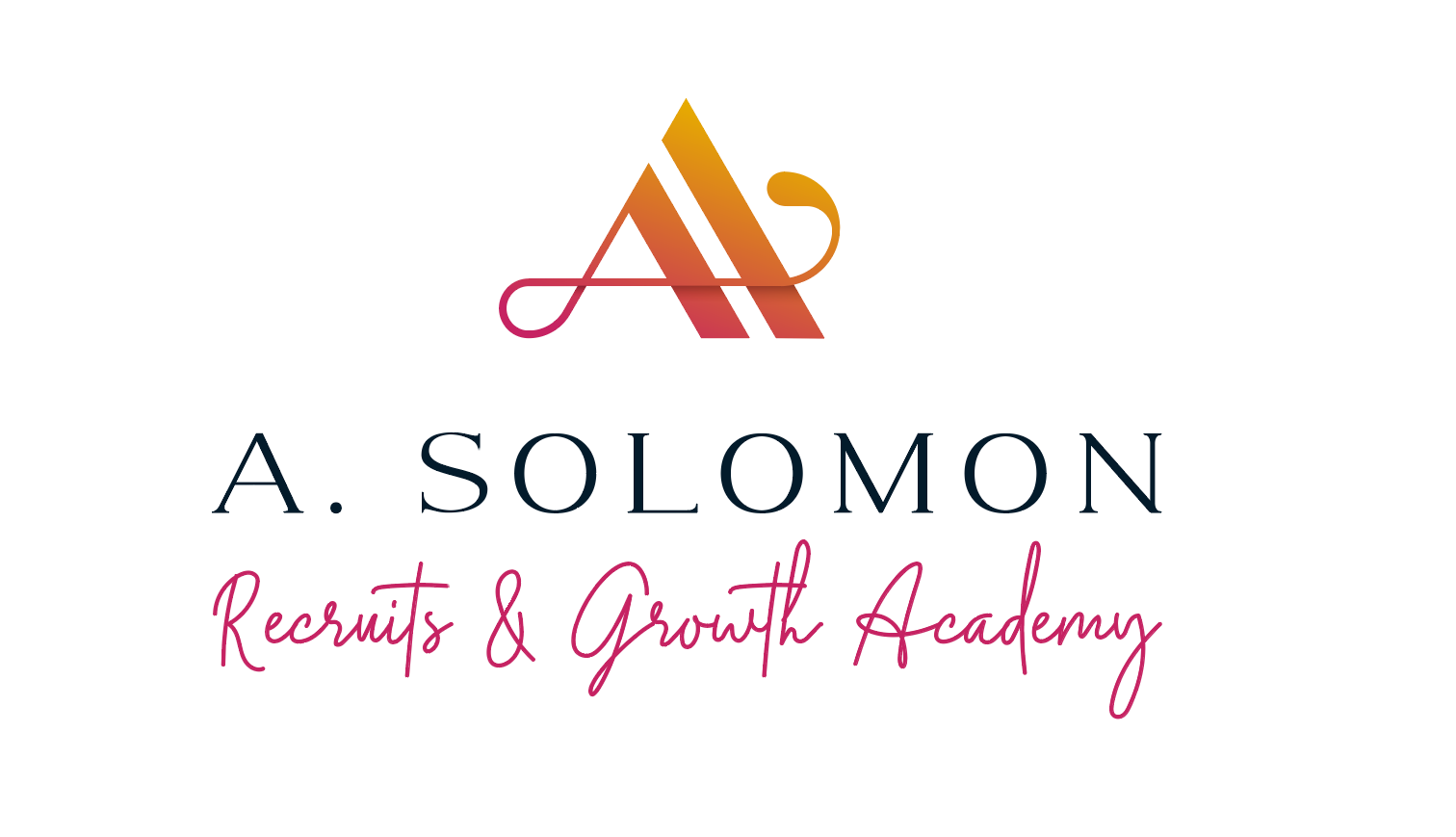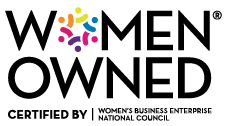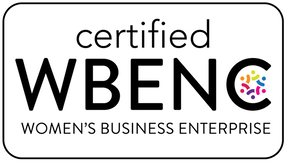"Persevere": The Weight of Black Exceptionalism
When I started my career in corporate recruiting over two decades ago, a Black or Hispanic person in a c-suite position was almost unheard of.
When I started my career in corporate recruiting over two decades ago, a Black or Hispanic person in a c-suite position was almost unheard of. Today, it’s still few and far between. By the time a person of color gets into a position of power, they have already endured a lifetime of being “the only one”, and this exceptionalism is lonely, exhausting and a heavy weight to carry.
This was showcased in last week’s confirmation hearings for Supreme Court nominee Ketanji Brown Jackson. She told a story about walking through campus at Harvard University that rang so true to my experiences at Vassar College that it made the hair on my arms stand up on end. While walking down a path on campus, a Black woman unknown to Jackson gave her a knowing look and leaned into her while passing and said, “persevere”.
It made such a big impact on Jackson that she told the story three decades later. This is a story about racial exceptionalism and I understand this story deeply.
Attending Vassar was the beginning, for me, of an entire career of culture shock. While I grew up with educated parents, conversations about college, especially Ivy League-caliber colleges like Vassar, were completely outside of my scope of awareness. It was a high school teacher of mine who recommended I apply to Vassar. At the time, I took her advice blindly—I didn’t know an Ivy League from a state school.
When I got to Vassar, the only way that I can describe my experience was that of culture shock. Never before had I seen fellow classmates driving Mercedes Benz’s to class. Conversations were different. People casually referenced their parents’ boat or their families’ vacation house in the Hamptons. These conversations were foreign to me.
The campus looked like a fairy tale. The historic architecture reminded me of Disney castles. For me, Vassar was not just a college, it was entry into an entirely new universe. And, unsurprisingly, Black girls like me were the exception.
I was almost always the only Black girl in my class. When I would see another Black kid in class or on campus, I felt immediate kinship with them, based solely on the fact that we were both enduring a white world together. Being “the only one” becomes old very quickly. With this exceptionalism comes a feeling of great responsibility to represent not just yourself but your people, to not just work but to be an inspiration, and the process is lonely.
We are often asked to be the spokesperson for all Black people everywhere, as if all Black people were one united force with the same experiences and same opinions. It's no surprise that Jackson’s race came into her confirmation hearings. She was asked to speak not just to her legal career but to her experience as a Black woman in a position of power. As a Black Supreme Court justice, she will be asked to not just rule fairly but to be an inspiration to Black children everywhere for what is possible for them.
It is amazing to me that in 2022, we are taking up the limited time of a confirmation hearing to talk about the color of the nominee’s skin. The fact that race factored into her hearing at all is a small testament to the huge divide in opportunity and representation for Black people in America. I do what I do in order to make the lives of those who look like Brown Jackson and myself slightly easier than ours were.
We are still fighting an uphill battle every time a Black person finds his or her way into a position of power but it is my hope that through this work, that playing field becomes more and more level. And there is only one way to do that: by putting more people of color into positions of power.
--
Corporate America approaches DEI like it’s a puzzle that has to be solved. The shortage of Black representation in positions of power is presented like a social phenomenon and a Sisyphean struggle against forces greater than us, as if achieving equal representation in corporate America were equivalent to ending world hunger.
It’s not that difficult.
It comes down to one thing: hiring Black people. Simple as that.
Corporate America has no shortage of reasons for why they don’t hire enough Black talent: the pool of talent is smaller, those who are applying aren’t qualified, they are qualified but don’t check the exact boxes the hiring manager is looking for, they don’t fit the company culture, their tone was off, their speech was different, their dress was unprofessional, the list goes on. There is no shortage of excuses.
Corporate America has made it a habit to only hire Black talent when it conforms to white comfort. Hiring managers are unwilling to compromise ease for impact. The style of hiring that I most often see is plug-and-play: hire someone who so seamlessly fits into a role that no training is required and no adjustment time is necessary. This model allows for comfort but it doesn’t allow for change. Qualitative change takes time. We will get to a place where the roles hiring managers are looking to fill have room for more diverse candidates, but until diversity is the norm, plug-and-play cannot be the standard.
It’s possible that some Black talent will require more training than some white talent or that Black talent will check different boxes, look different than a hiring manager expects or that bringing Black talent into a mostly white workplace might come with some awkwardness and discomfort.
The history of the Black workforce is so wildly different from the history of the white workforce that a white hiring manager’s expectation that Black talent should check the same boxes or seamlessly fit into an all-white workplace is unrealistic. Of course it will be an adjustment. But the discomfort of adjusting to a new way of being should never result in a choice to not make a positive change. Hiring managers must hire not just for immediate gratification but with long-term goals in mind and they must hire not just for comfort but for impact.
In her confirmation hearing, nominee Ketanji Brown Jackson quoted Justice Stephen Breyer in his description of the law.
“What is law supposed to do, seen as a whole? It is supposed to allow all people—all people—to live together in a society where they have so many different views, so many different needs—to live together in a way that is more harmonious, that is better, so that they can work productively together.”
We cannot all work productively together if we are not all in the same room.
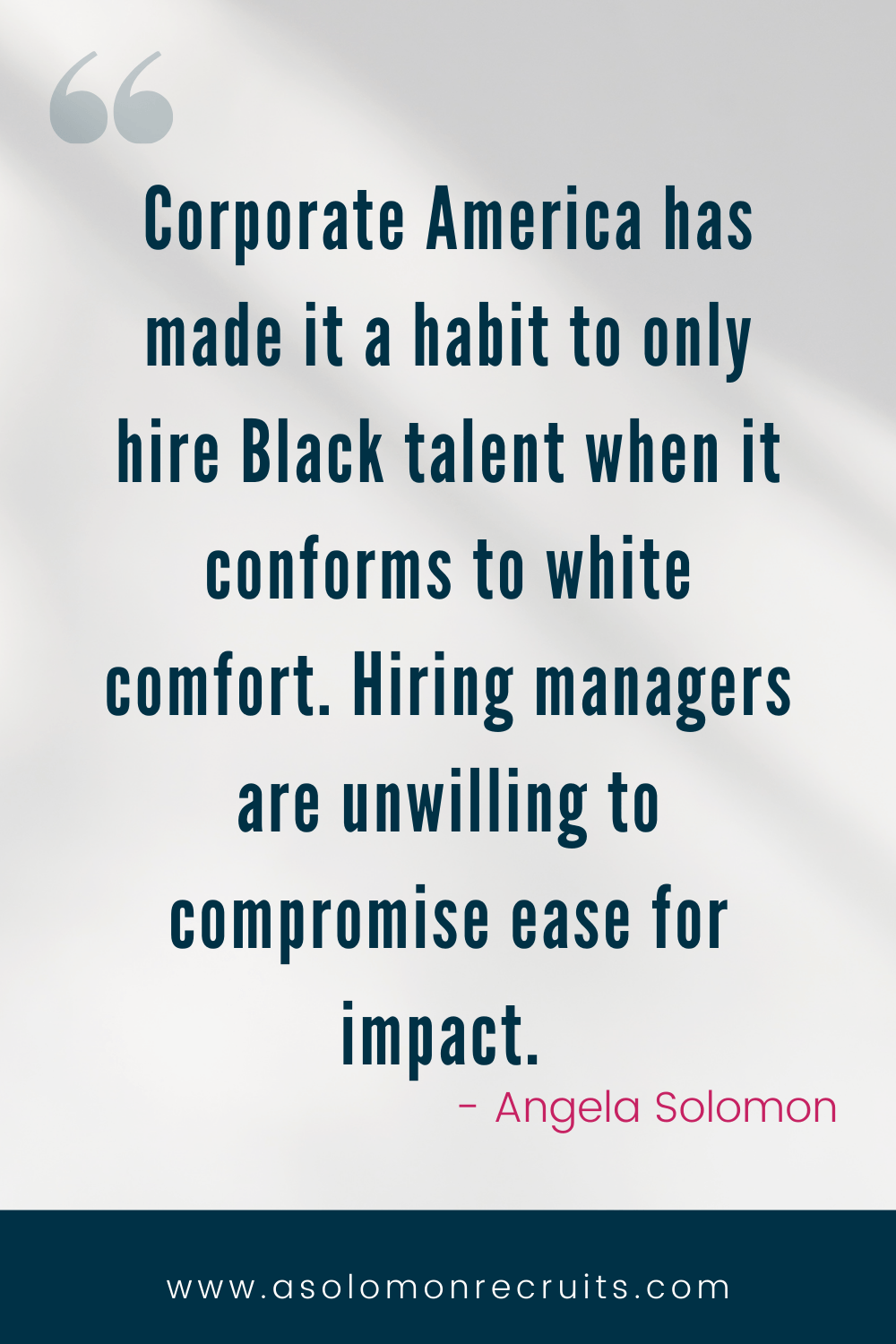
Earbuds Pairing: "Leaving The Past Behind" by Immortal Technique
Felipe Andres Coronel, better known as Immortal Technique, is a self-made artist who never sold out. He first started distributing his music when he was in his early 20’s by selling it on the streets of Harlem while gaining notoriety in New York’s underground hip hop scene. He self-released his first album in 2001 and even after gaining press and praise for his album, chose not to partner with a record label for the remainder of his album releases, uninterested in allowing a label to muzzle him, influence his music or profit off his work.
Throughout his career, he’s maintained this independence of thought, rapping about race and politics and holding no punches. A recurring theme in his music is critiquing our broken system that serves only a few and profits off the rest.
Revolutionaries take different approaches to addressing broken systems. Some break into the system and attempt to change it from within. Some use the system against itself and use their amplified voice to speak truth to power. And some people forego the system entirely, even when it can help them, as if any victory achieved through means they don’t believe in would negate their desired ends.
While Immortal Technique chose to forego the system entirely, Ketanji Brown Jackson is rising within its ranks, showing the world what it looks like for more Black faces and voices to be represented in bodies of the highest honor in government. There’s no wrong way to stand up for what you believe in, but if your goal is comfort, you will never be on the vanguard of change.
Changing a system requires radically releasing the way things once were in favor of acting in accordance with the way things should be. Only by straying from the past can we arrive at the future. In the words of Immortal Technique, You can make the future/But it starts with leaving the past.
